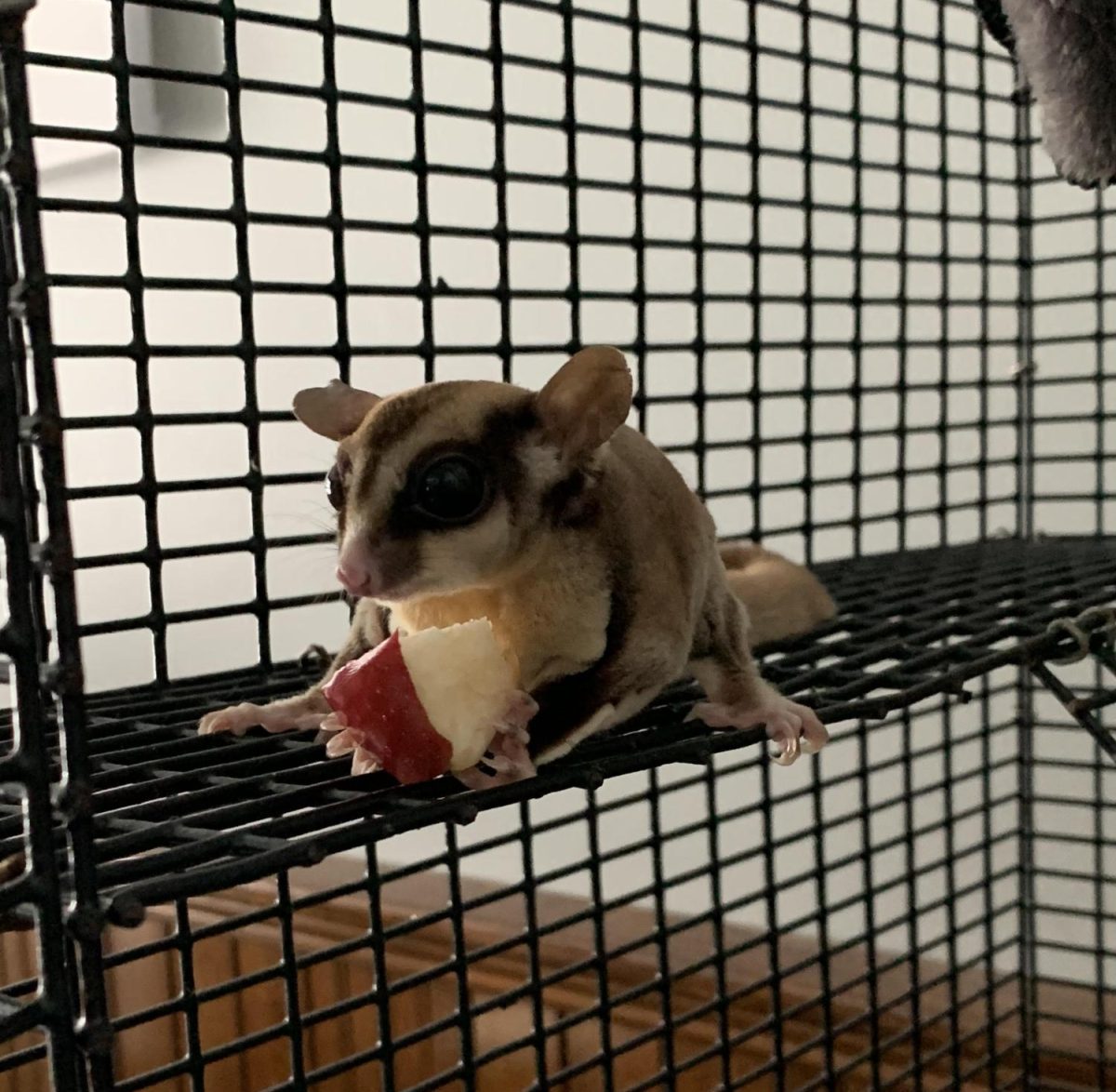Owning exotic animals is very dangerous, causing many deaths. Even with their vaccinations, they could still cause harm, like diseases and health risks.
Some places don’t allow exotic pets because of the risks. They spread many diseases, and it doesn’t matter what exotic animal it is.
There are many different types of exotic animals people are legally able to own, such as chipmunks, prairie dogs, degus, flying squirrels, and many more. Owning these types of animals is very difficult because they need to have a space that is similar to their environment. They also need special diets and special care. Some animals also have stress and trauma from being captured.
We interviewed an Oakmont student, Tyler Manuel, asking him about his flying squirrel. “She was in her cage most of the time since she was nocturnal,” Tyler said. “She had a special cage because she would try to get out, so the cage needed horizontal and vertical bars.”
“When she was younger and if we had something sugary on my hand and went to pet her through the bars, she would sometimes bite our fingers,” Tyler said. “As she got older, she stopped with the biting.”
It is very common to be bitten by an exotic animal. If bitten by an exotic animal, you should seek medical attention immediately. It is important to seek medical attention because exotic animals carry many illnesses and diseases.
“She would eat dried grasshoppers, fruits, grapes, and nuts. We would feed her every night because that is when she would come out normally.”
An exotic animal needs a special diet because some foods could be harmful to them. Most exotic animals should eat things like a mix of fresh foods, special pellets (based on their species), and fruits.
“The biggest challenge with owning a flying squirrel is going on vacation because not a lot of people like flying squirrels, or they don’t know how to feed them.”
These exotic animals come from being captured or through captive breeding programs. They haven’t been treated well, which makes them scared, threatened, ill, or injured.
Being kept away from their habitat or environment is hard for them because it causes stress, leading to behavioral issues like aggression and biting often.
Some people might say they’re safe to keep, but some people think it’s not, because if you own an exotic animal, you have to take care of it properly.
In order to own an exotic pet, you must have a permit. You can get a permit by contacting the authorities for local animal control and meeting requirements like having a clean house, but there are more steps to apply for the permit.
If you get caught with an exotic animal when you’re not supposed to, you can get fined, jail time, or the animal can be seized. This is why you should ask the authorities to have a permit so you don’t have to be sneaky about it.
For example, reptiles like a bearded dragon or a turtle can be safe to keep, but also aren’t at the same time. If you have other big pets like a dog or a cat, it’s very risky. Also, the bearded dragon or any other reptile can spread diseases like Salmonella.
Another challenge with owning exotic animals is the fear and dangers of them escaping. If escaped, immediately contact the local animal control and police. You could face legal and financial consequences for letting the escape of an exotic animal happen.
If thinking about owning an exotic animal, make sure to research their specific habitat, have a local veterinarian, pay attention to their diet, and behavior.

















